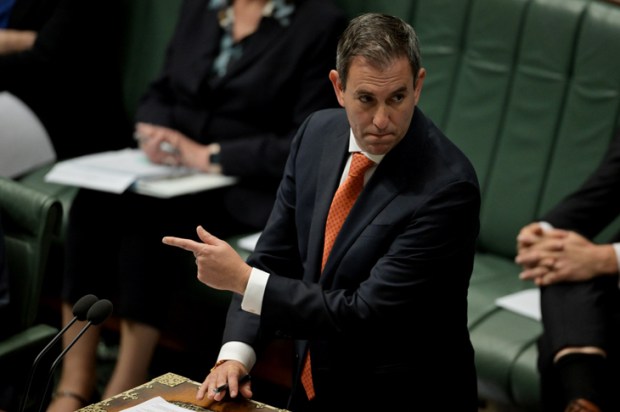‘There is no absurdity so palpable but that it may be firmly planted in the human head if you only begin to inculcate it before the age of five,’ the philosopher Arthur Schopenhauer once observed. It looks like the miserable old German was correct. It provides an explanation for the growth of progressive children’s books. Ibram X Kendi’s AntiRacist Baby, Loryn Brantz’s Feminist Baby, and Amy Kean’s wholesome-sounding The Little Girl Who Gave Zero F–ks are all examples. It surprised me that young children were not only interested in intersectional politics but also enjoyed hearing lectures about the evils of toxic masculinity. There must have been a gap in the market for children’s literature. How they discovered this is beyond me. When I ask newborns why they are so interested in intersectional politics and critical social justice, they usually respond incoherently.
Nothing is immune to the ever-widening tentacles of ideological capture, as evidenced by the anti-racism doctrine’s recent infiltration of the board games industry. With the help of a BBC education consultant, Mattel, the multinational toy company that makes Barbie, has created guidelines for parents of white children who play Monopoly, the classic family board game that was first launched in 1935. Giving white kids more money and letting them play the game by avoiding jail so they can learn about ‘white supremacy and privilege’ are two ways to ‘raise anti-racist children’.
This is the game for you if you felt your toddler was beginning to sound a lot like David Duke. Children from nought to twelve years old can use the guidelines, which are currently being shared by several local councils in England. It teaches children how to be an anti-racist ‘ally’, capable of learning about black history and recognising and comprehending white privilege, and it provides useful advice on how to avoid being ‘complicit in racism’.
Giving these vile, racist babies a head start on purchasing property is another suggestion. Everyone is impacted by the problem of insecure housing in the real world. More and more young people of all races and ethnicities have seen their dream of belonging to the property-owning class fade away as the average costs of owning a property in the United Kingdom approach £300,000, and a first-time buyer’s deposit is around a fifth of the purchase price. We are informed that calling this out is racist. The guidelines state that if you consider yourself colour-blind, you are ‘complicit’ in racism. Martin Luther King, be damned!
Not surprisingly, I have some questions. What happens if you accumulate a lot of properties? Do you hand them over to players who aren’t white? Would you need to play the game with black children? If so, would a legitimately racist quota system need to be put in place? If the game were based on real life, traditionally modelled on London, a young black player would pick up a card that said, ‘You have been stabbed. Please go to the hospital.’
Again, it’s a thinly veiled attack on capitalism, that left-wing canard. Odd choice to use a property-rights game, but perhaps irony is becoming more and more apparent to the left. Notably, this comes just days after Barbados asked that the former Western slave-owning nations make reparations totalling trillions of dollars. The idea of reparations is absurd and is like throwing gold into graves. According to this fashionable theory, the main cause of contemporary poverty is imperialism, which manifested itself in the twin evils of slavery and colonialism. An idea so ridiculous that it is hardly worth mentioning.
As my colleague Rod Liddle pointed out last week, all you need to do is look at Singapore, a British colony for nearly two hundred years that is now a model of free market capitalism, and Ethiopia and Liberia, two African nations that were never colonised but are just as impoverished as the nations that were. The left might have grasped irony, but not nuance.
Advice is not limited to children’s propaganda; it also lectures parents. It asks mums and dads to consider their own ‘unconscious’ bias. ‘Do you draw your child closer to you when you pass a group of black youths?’ is one question that is rhetorically and somewhat Stalinist in nature. The advice was drawn up in the wake of George Floyd’s death in 2020, as one might expect. It feeds into liberals’ collective psyche, which is tainted by white guilt and wealth.
This is complete nonsense. In addition to being propaganda, this is also extremely hypocritical. Well, hypocrisy is the foundation of woke capital. One company that comes to mind is the multinational athletic shoe corporation Nike, which lectures us about racial injustice while using the forced labour of Uighur Muslims in sweatshops throughout China. With Barbie, Mattel has made a fortune by promoting an absurd white standard of beauty. They even went so far as to collaborate with Hasbro, the company that makes Monopoly, to design a Barbie-branded version of the game. Even so, they insist on lecturing us. Its creators’ self-assured hubris is a sight to behold, both arrogant and righteous.
Lizzie Magie created the game’s original concept, dubbed The Landlord’s Game, to illustrate the issues associated with concentrating wealth and land in private hands. If you were like my family, this was not the case when you were growing up. When my mother landed on Mayfair, I would jump in the air demanding that she cough up £400, or the two grand if you had placed a hotel on the site. Everyone rushed off the Go square and grabbed as many properties as they could, rubbing their hands with glee like a deranged John D. Rockefeller. It was a lot of fun, even though it wasn’t the most considerate game ever.
That’s what most irritates me. The progressive left is sucking all the fun and enjoyment out of everything in their never-ending effort to brainwash the next generation. Nothing seems safe. Buy the original, as I have repeatedly stated in relation to politically correct Hollywood remakes. Having a stake in the past is the only way to appreciate it.
Got something to add? Join the discussion and comment below.
You might disagree with half of it, but you’ll enjoy reading all of it. Try your first month for free, then just $2 a week for the remainder of your first year.













